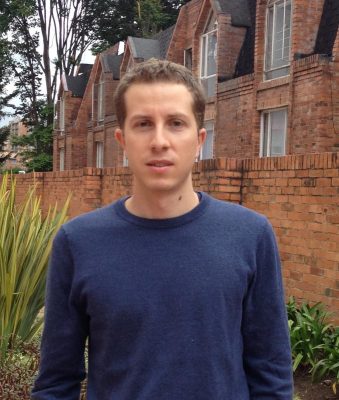Student Spotlight: Mariano Sanchez Talanquer

What is your area of research?
I study comparative politics with a focus on the historical development of states in Latin America. I am generally interested in the origins of political institutions and why states develop or fail to develop core institutional capacities. My dissertation looks at critical historical periods of state-building during the 20th century in Mexico and Colombia, to understand why the state’s ability to control violence, provide law and order, levy taxes, and perform other basic functions came to vary so greatly within each country.
What inspired you to choose this field of study?
In recent years Mexico, where I was born and raised, has been experiencing a deep security and human rights crisis that I think reflects long-standing weaknesses in state institutions, apart from other more immediate factors. And of course the failure of states to protect basic rights, keep the peace, and exercise effective authority is a major political problem in Latin America and elsewhere. I wanted to work on something that helped us understand this, and I thought the contemporary problems of the state needed to be put in historical perspective and related to broader processes of institutional development.
Why is this research important?
All sorts of social, political, and civil rights—including the most basic right to a life without violence—rest on effective state power. Variations in state capacity, which are substantial not only across countries but also within them, help explain differences in economic development, political stability, and in general in levels of individual and social well-being. So I think it is important to understand how history produced these variations in the strength of state institutions.
How has your background influenced your scholarship?
Growing up in Mexico with some level of political awareness I think greatly shaped my interests. The history is so rich, and you witness such socioeconomic inequalities, that you cannot remain indifferent to politics. My family background also contributed to my interests—my grandparents had to flee to Mexico during the Spanish Civil War. On the professional side, before coming to graduate school I worked in Mexico’s election management body, which given the country’s history is a very important institution. That gave me a sort of firsthand experience with politics and a sense of how outcomes we care about depend on the strength of public institutions.
What else has influenced your thinking as a researcher or scholar?
I have been fortunate to have great mentors, both in academia and outside, who have influenced my thinking and career choices. Apart from that I try to read broadly, including work outside my own discipline, and that has also shaped my research. It has produced a preference for historically grounded political science. Coming to graduate school to the U.S. and in general experiencing life outside my own country have also stimulated comparative thinking, which is a very useful tool as a social scientist.
You’ve traveled a bit as part of your research. Can you elaborate on those experiences?
As part of my dissertation research I have done fieldwork in Mexico and Colombia. I have mostly worked in national and local archives to collect new, disaggregated historical data on the development of core state institutions. These trips have also allowed me to connect with local scholars, from whom I have learned a great deal.
You also recently received a travel grant from the Grad School to conduct more research in Mexico and Colombia. What do you plan on researching on this trip?
Mostly collecting some more data I need to complete the empirical sections of my dissertation.
In what ways will the research you conduct on this trip prove vital to your scholarship?
Since my project has a strong historical and empirical component, it is impossible to collect the quantitative and qualitative data I need without these research trips. I think being able to conduct research directly in the countries I am studying will improve the quality of my work and will allow me to contribute archival data that I otherwise would not have access to.
Any advice for other graduate students interested in applying for research travel grants?
For me it was useful to think about very specific things that a trip would solve or add to my research project and that I needed to do. But I think once you get there, it is also important to keep your eyes open for unexpected leads.
Why did you choose Cornell to pursue your degree?
I knew it was a very good university, the government department is very solid in comparative politics, and I wanted to work with Professor Kenneth Roberts, who is now my Ph.D. advisor. Other personal reasons were also important.
What’s next for you?
Finishing up my dissertation and hopefully continuing to do research.
Interview by Sally Kral, communications and outreach assistant in the Graduate School
